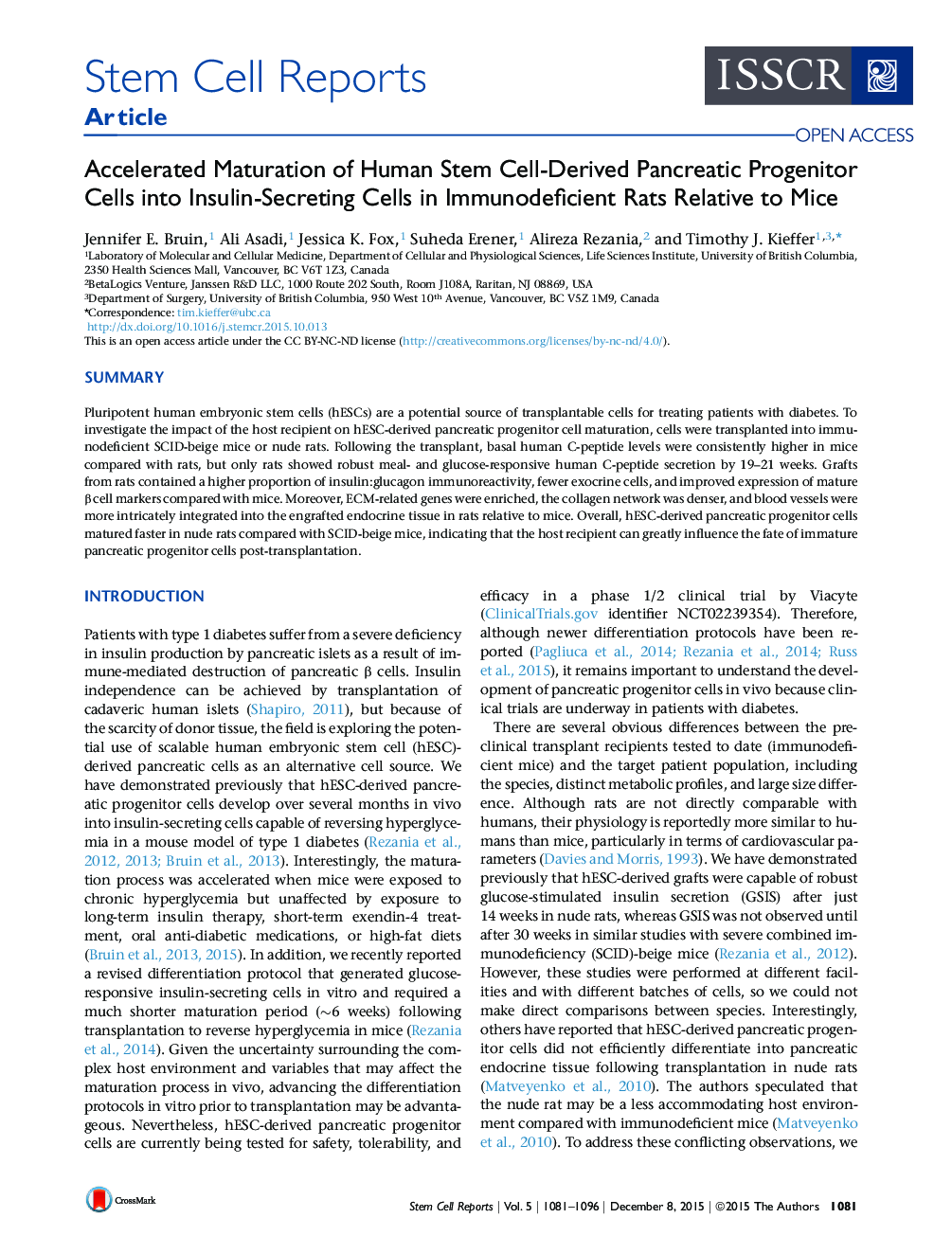| Article ID | Journal | Published Year | Pages | File Type |
|---|---|---|---|---|
| 2093709 | Stem Cell Reports | 2015 | 16 Pages |
•hESC-derived pancreatic progenitor cells matured faster in nude rats than in SCID-bg mice•Human C-peptide secretion was meal-regulated in rats but not in mice at 19 weeks•Grafts from rats expressed more mature β cell markers compared with mice•Grafts from rats had a denser ECM and greater vasculature than grafts from mice
SummaryPluripotent human embryonic stem cells (hESCs) are a potential source of transplantable cells for treating patients with diabetes. To investigate the impact of the host recipient on hESC-derived pancreatic progenitor cell maturation, cells were transplanted into immunodeficient SCID-beige mice or nude rats. Following the transplant, basal human C-peptide levels were consistently higher in mice compared with rats, but only rats showed robust meal- and glucose-responsive human C-peptide secretion by 19–21 weeks. Grafts from rats contained a higher proportion of insulin:glucagon immunoreactivity, fewer exocrine cells, and improved expression of mature β cell markers compared with mice. Moreover, ECM-related genes were enriched, the collagen network was denser, and blood vessels were more intricately integrated into the engrafted endocrine tissue in rats relative to mice. Overall, hESC-derived pancreatic progenitor cells matured faster in nude rats compared with SCID-beige mice, indicating that the host recipient can greatly influence the fate of immature pancreatic progenitor cells post-transplantation.
